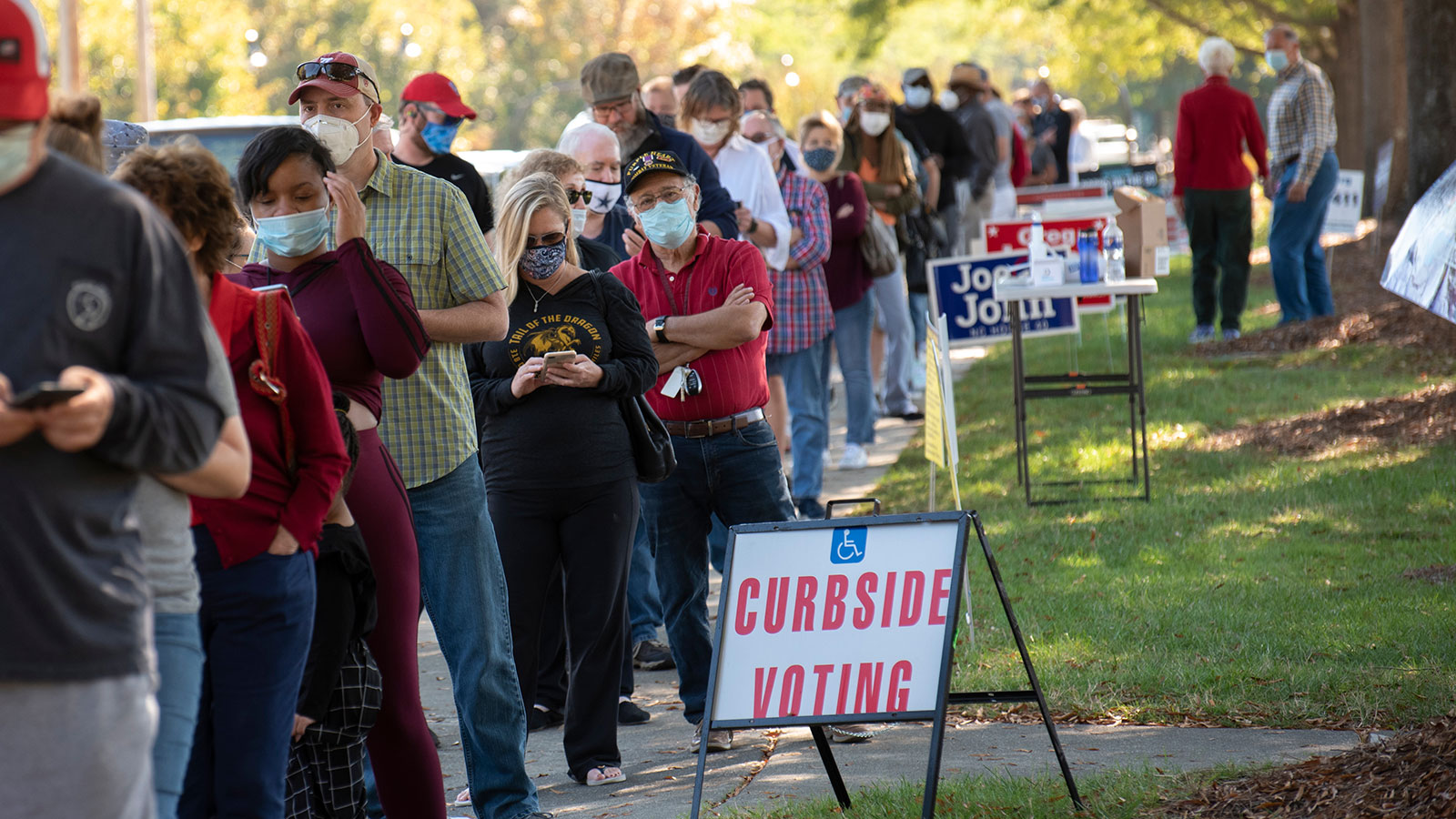
Open Letter
Open Letter Regarding Voter Suppression
June 28, 2021
March 30, 2021
Editorial credit: Sharkshock / Shutterstock.com
The right to vote in the United States is at risk, endangering the foundation of our democracy. We need America’s legal institutions to serve as a bulwark against these attacks, and to use their powerful and influential voices to protect the rule of law.
Through this Open Letter, we denounce the widespread efforts to curtail ballot access.
We call on bar associations, law firms, and law schools to use their resources and power to protect and expand voting rights and to support lawyers within their ranks who actively engage in voter protection efforts.
There are many ways the profession can speak and act to protect and preserve our democracy, for example:
- Expand pro bono activities to include direct engagement in the many organizations that protect voting rights;
- Mobilize to fight these laws directly in the courthouse;
- Engage in efforts at the state and federal level to increase voter access;
- Engage with businesses and community leaders in every state to demonstrate meaningful support for voting protection; and
- Refuse to schedule meetings and events in states that disenfranchise minority voters.
Today’s voter suppression has long roots in our nation’s history. But the pace and intensity have been exacerbated by the Big Lie – the false statement that the 2020 election was “stolen” and that new laws are needed to improve “election security.”
Georgia experienced record turnout in the presidential election that election officials and the courts deemed to be secure, notwithstanding multiple recounts and court challenges. Nonetheless, the states rushed to pass a sweeping new law that will severely impact the approximately 40% of its registered voters who are people of color. Restrictions include limits on voter registration, absentee and early voting, and the use and availability of drop boxes. It even criminalizes providing food or water to those waiting in line to vote, a racially disparate impact demonstrated by the fact that those who suffered in the hours-long lines to vote were disproportionately Black.
Had this law been in effect in November, the election results could have been overturned, as the law strips the powers of the Secretary of State to oversee the certification of elections, giving that power via the legislature to political appointees.
References to this law as “Jim Crow in the 21st century” are not hyperbole.
The analogy is as real as the arrest of Georgia State Representative Park Cannon for knocking on the door of the guarded state house room in which Governor Kemp signed the bill into law. As the governor tweeted out a photo of the white male audience behind him at the signing, the Black state representative who sought transparency was thrown in jail.
Years ago, then American Bar Association president Jerome J. Shestack reflected on the legal profession’s missing voice during the civil rights movement in the early 1960s:
Across the nation during that summer of ’63 the civil rights movement began to awaken the nation’s sleeping conscience. … Where was the organized bar, the lawyers of this nation, during this fateful time? … By the winter and spring of 1963, when this nation had already witnessed police abuse of freedom riders, murder of civil rights workers, and bombing of [Black] churches, the organized bar had yet to raise its voice in any concerted protest.
When a white supremacist murdered Medgar Evers in 1963, Evers was holding T-shirts for civil rights demonstrators saying “Jim Crow Must Go.” Ten days later, President Kennedy invited more than 200 prominent lawyers to the White House to mobilize the power of the legal profession. Robert F. Drinan S.J., then Dean of Boston College Law School and vice-president of the Massachusetts Bar Association, noted that Attorney General Robert Kennedy “reminded the eminent lawyers present at that historic gathering that the nation’s attorneys had not spoken up for justice for the country’s black minority.”
The protections afforded by the 24th Amendment, the 1964 Civil Rights Act, and the Voting Rights Act of 1965 were supposed to end the century of voter suppression that followed the adoption of the Fourteenth and Fifteenth Amendments. Yet, in the 2021 state legislative sessions, at least 43 states have proposed more than 250 bills that restrict the right to vote by such means as: limiting early and mail-in voting; expanding voter ID requirements; eliminating or burdening same-day voter registration; and expanding voter purges.
Some who support today’s voter suppression bills do not even try to hide their motives in the cloak of fraud prevention. Senator Ted Cruz recently stated that if federal legislation to increase voter access succeeds, the GOP will not win an election again for generations.
Stunningly, in a recent Supreme Court oral argument on a challenge to Arizona’s restrictive voting practices, Michael Carvin, the attorney for the Arizona Republican Party, justified the restrictions by stating that the party would be at “a competitive disadvantage,” adding that “Politics is a zero-sum game.” As a fitting coda to that point, the Arizona legislature is currently considering approximately two dozen bills to further restrict voting access.
Voter suppression remains the major civil rights challenge facing our country and a major threat to our democracy. History teaches that no profession and no institution – however large, established, or secure – is immune to the loss of freedom and safety wrought by the loss of a constitutional Republic.
We, the signers of this Open Letter, urge leaders of our nation’s bar associations, law firms, and law schools to openly and actively engage in protecting our most sacred democratic institution – the right to vote.
Stay Informed —
featured press


All Rights Reserved. © 2026
General Inquiries • Press Inquiries • Follow on: LinkedIn • Instagram • Bluesky • Facebook